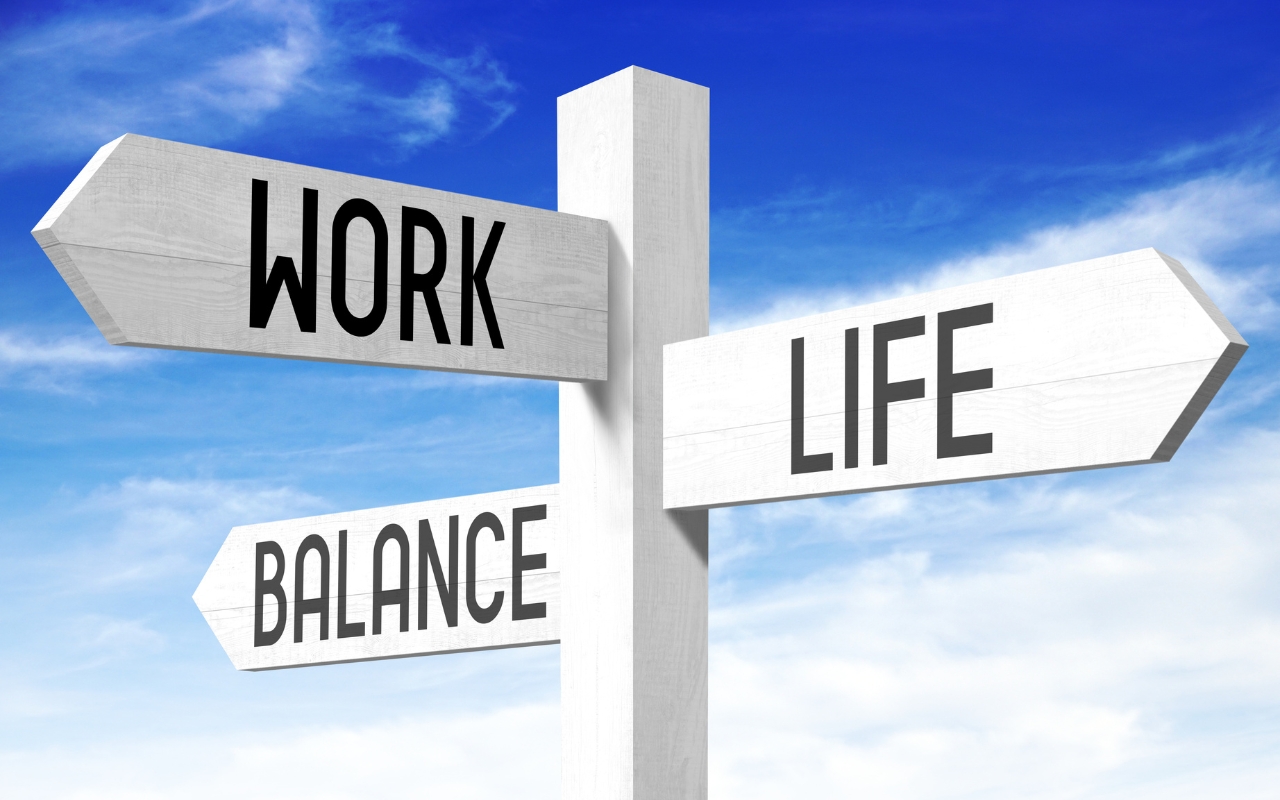In today's fast-paced and interconnected world, the concept of work-life balance often feels elusive. The lines between professional duties and personal life frequently blur, making it challenging to find equilibrium. Yet, achieving a healthy work-life balance is not only possible but essential for overall well-being and productivity. This comprehensive guide provides strategies and insights to help you attain the ultimate work-life balance.
The Importance of Work-Life Balance
Work-life balance is not merely a buzzword; it's a crucial aspect of a healthy, productive, and fulfilling life. Striking a balance between professional responsibilities and personal interests fosters physical and mental health, enhances relationships, and boosts job satisfaction. When individuals focus excessively on work, they may experience burnout, stress, and a decline in quality of life. On the contrary, balancing work with personal time can lead to a more managed and content life.
Understanding the Consequences of Imbalance
The consequences of not maintaining a proper work-life balance are far-reaching. According to Mental Health America, prolonged stress and overwork can lead to severe mental health issues, including anxiety and depression. Physically, it can result in sleep deprivation, heart disease, and other health problems. Work-life imbalance often strains relationships, reducing the time and energy available for family and friends, thereby leading to social isolation.
The Rewards of Balanced Living
Achieving a harmonious balance between work and personal life brings numerous benefits. Individuals who maintain this balance tend to be healthier, happier, and more engaged at work. They exhibit higher productivity levels, creativity, and overall job satisfaction. Furthermore, they enjoy better relationships and a higher quality of life, making them well-rounded and fulfilled individuals.
Strategies for Achieving Work-Life Balance
Set Clear Boundaries
One of the most effective strategies for achieving a balanced life is setting clear boundaries between work and personal time. This can be as simple as designating specific hours for work and non-work activities and sticking to them. Avoiding work calls or emails outside of these hours can help reinforce these boundaries. As highlighted by Psych Central, setting work boundaries for yourself and with others is crucial. When boundaries are respected, it prevents work from spilling over into personal time, thereby preserving the time needed for rest and relaxation.
Embrace Flexibility
Flexibility at work can significantly contribute to a better work-life balance. Many companies now offer flexible work arrangements, such as telecommuting, flexible hours, or compressed workweeks. These arrangements allow employees to manage their work schedules around personal commitments, reducing stress and increasing job satisfaction. Research from Mental Health America indicates that employees who have flexible work schedules are more productive and loyal.
Prioritize Self-Care
Neglecting self-care can lead to burnout and decreased productivity. It's essential to prioritize activities that promote physical and mental well-being. Regular exercise, a balanced diet, adequate sleep, and relaxation practices, such as meditation or yoga, are critical components of self-care. Taking breaks during work, as suggested by The Hartford, can also improve creativity and reduce stress levels.
Learn to Say No
Overcommitting can lead to excessive stress and an unmanageable workload. Learning to say no to additional tasks or projects that don't fit within your capacity is crucial. As noted by Asset Living, evaluating your current commitments and respectfully declining new ones can help manage your workload effectively. This practice ensures that you have enough time and energy for both work and personal activities.
Take Regular Breaks and Vacations
Taking regular breaks during the workday and vacations can significantly enhance work-life balance. Short breaks throughout the day can help reset your mind and improve focus and productivity. Longer breaks, such as vacations, allow for complete disconnection from work, providing an opportunity to relax and recharge. According to Business News Daily, unplugging from work occasionally is crucial for mental health and overall well-being.
Effective Time Management
Managing your time efficiently is key to balancing work and personal life. This involves setting priorities, creating schedules, and avoiding procrastination. Breaking large tasks into manageable steps, as recommended by Mental Health America, can make overwhelming projects seem more achievable. Additionally, using productivity tools and apps can help streamline tasks and manage deadlines effectively.
Foster Supportive Relationships
Having a strong support system is vital for maintaining work-life balance. This includes supportive family and friends, as well as a positive work environment. According to Mental Health America, individuals with strong support systems have better immune responses to illnesses and can manage stress more effectively. Engaging with loved ones and participating in social activities can provide emotional support and a sense of belonging.
Communicate Your Needs
Effective communication with your employer and colleagues can help create a more balanced work environment. If you feel overwhelmed or stressed, don't hesitate to discuss your concerns and seek support. Suggest practical alternatives to improve efficiency and reduce stress. Open communication fosters understanding and can lead to positive changes in the workplace.
Schedule Time for Fun
Scheduling time for leisure activities is just as important as scheduling work tasks. Engaging in hobbies, spending time with family and friends, or simply relaxing can rejuvenate your mind and body. As highlighted by The Hartford, scheduling fun activities encourages you to leave work at a reasonable hour and enjoy life outside of work.
Stay Active and Healthy
Regular physical activity is crucial for maintaining overall health and combating stress. Exercise releases endorphins, which improve mood and reduce stress. Incorporating physical activities, such as walking, jogging, or yoga, into your daily routine can enhance both physical and mental health. Additionally, maintaining healthy eating habits, as suggested by Kantata, can fuel your body and mind, improving your energy levels and overall well-being.
Seek Professional Help
If you find yourself persistently overwhelmed or unable to manage stress, seeking professional help is a wise step. A mental health professional can provide guidance and strategies to cope with stress and improve work-life balance. Remember, asking for help is a sign of strength, not weakness.
Long-Term Solutions for Sustainable Balance
While the above strategies are effective, achieving a sustainable work-life balance requires a long-term commitment to certain lifestyle changes.
Reflect and Reevaluate
Regularly reflect on your priorities and evaluate your current work-life balance. Life circumstances and priorities change over time, so it's essential to adjust your approach accordingly. Periodic self-assessment helps ensure that you stay aligned with your goals and maintain balance.
Develop Resilience
Building resilience can help you manage stress and adapt to changes more effectively. Resilience involves developing coping strategies, maintaining a positive outlook, and learning from experiences. Resilient individuals can navigate challenges without compromising their well-being.
Embrace Continuous Learning
Continuous learning and self-improvement can enhance both professional and personal life. Pursuing new skills, hobbies, or interests keeps life exciting and fulfilling. Engaging in lifelong learning can also improve job satisfaction and open new career opportunities.
Cultivate a Positive Mindset
A positive mindset can significantly impact your ability to achieve work-life balance. Focus on the positive aspects of your life, practice gratitude, and maintain a hopeful outlook. Positive thinking can improve mental health, increase resilience, and enhance overall quality of life.
Design a Balanced Lifestyle
Designing a lifestyle that incorporates balance requires mindful planning and intentional choices. Integrate activities that promote well-being into your daily routine, set realistic goals, and prioritize self-care. A balanced lifestyle fosters long-term health and happiness.
Conclusion
Achieving work-life balance is a continuous journey that requires conscious effort and commitment. By setting clear boundaries, embracing flexibility, prioritizing self-care, and fostering supportive relationships, you can create a fulfilling and balanced life. Remember, balance looks different for everyone, so tailor these strategies to fit your unique needs and circumstances. By implementing these practices, you'll not only enhance your well-being but also improve your productivity and overall satisfaction with life. Taking action today can lead to a healthier, happier, and more balanced tomorrow.







